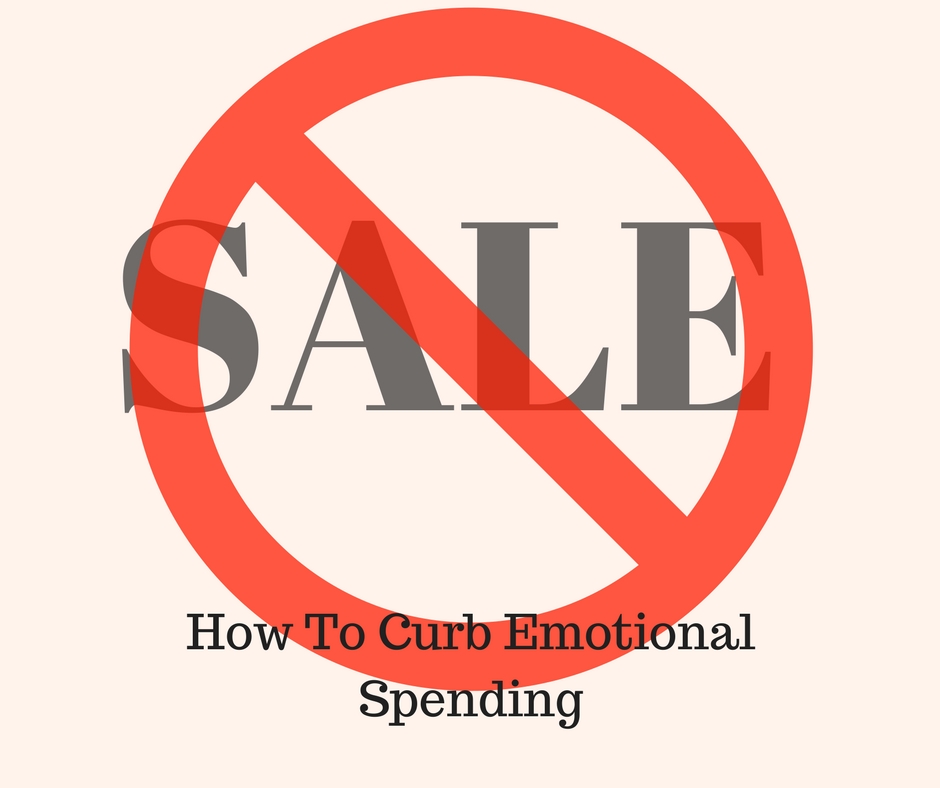How to Curb Emotional Spending
- 27 January 2018 | 1239 Views | By Mint2Save

Many of us reading this article love shopping. And why not, what’s the harm? It’s our or our parents or our spouses “hard earned money” which we are spending on ourselves or on things that give us happiness. We obviously have a right to do that. Isn’t it? Then where did this term “emotional spending” come from?
Do you identify yourselves in any of these scenarios:
- Online sales making you buy things you don’t need.
- Urge to change your phone or other gadget without any reason.
- Unable to serve your credit card debt as you have spent way beyond your limits?
If yes, you have had a fair experience of emotional spending or a ruthless shopping spree which is supported by no logic or reason.
Ideally, many of us mistake to recognize the difference between useful and wasteful shopping. There is a very thin line between useful and wasteful shopping. This is when emotional spending came into picture. Emotional spending arises when an individual spends money for the solitary purpose of improving one’s mood.
Emotional shoppers tend to shop in response to their negative emotions. People often also term it as “retail therapy”. The fact to be noted here is that shopping for ourselves can help us reduce anxiety, stress, deal with loneliness, improve self esteem and boost our moods.
With the era of online shopping on the rise, we are witnessing sales, pre launches, discounts, and offers at such a rapid pace that it is becoming more and more difficult each day to contain money in our wallets. Yes, we do need to wear good, eat good and live well, but how often do we cross the line between need and greed?
The important thing lies in the fact that shopping when done in moderation isn’t a problem but, it becomes one when it comes to a stage where we exceed our budgets, or feel guilty about our purchases or over-spend than what we have. People believe that emotional shopping is better than compulsive over-eating or consuming alcohol, but on a serious note; it is as addictive as the former two.
Signs that a person could be an Emotional Spender
There may be several indications to show that one is involved in emotional spending. The very first includes realizing the fact that you are an emotional shopper. Separating mind from heart when it comes to spending is a big and important step towards a beneficial relationship with finances.
Another could be that spending is your instant reaction to stress or you tend to spend regardless of your financial state. It’s about choosing those things over meeting your financial obligations.
Other reasons include factors like justifying your purchases; the feeling of purchasing things to maintain or uplift your social strata.
When a person feels that he/ she needs to have certain things (for example a luxury car or an expensive bag) to maintain his/her social status in the people they move around with, that is when people tend to shop emotionally. Another important indicator could be “regret”. If a person regrets his purchases then this could also be a sign of being an emotional spender.
Steps to curb emotional spending
- Knowledge about emotional spending triggers: This could depend on your mood or stress levels or anxiety levels. Once this is identified then you can focus on ways to combat it.
- Tracking our purchases: One should analyse the areas where you are spending your money on. In doing so you might come across items that you probably don’t require and this would in turn lead to not purchasing those the next time. It is of vital importance to reflect on your choices before you make any purchase
- Making budgets and sticking to them: The best and the easiest way to curb emotional spending is to prepare a budget of your finances. This not only helps you to avoid purchasing unnecessary things but also helps you save money that could be used for some better purpose.
- Another strategy could be of unsubscribing from retailer mailing lists and other spending apps. Often we fall prey to the tempting offers and discounts offered by these retailers and tend to shop. So, the only way out is to unsubscribe.
- To help you to avoid indulging in emotional shopping you can take the help of your friend or a financial advisor (a person who helps you invest your money and plan for your future). They can stop you from buying unnecessary things and even help you invest your finances at a better place leading to better financial habits.
- Another way could be to treat yourself with small purchases that fit well within your budget. By doing this you are uplifting your mood in a pocket friendly manner.
- The 48 hour rule: This is a very simple yet an effective way to deal with emotional spending. It is just basically giving yourself time before you make a specific purchase. Using the 48-hour rule is thinking about a specific purchase decision and its impact on your monthly budget before buying it. During this time period think about the product and its usability in your life. If you still think of buying it go ahead with it. This rule will curb your emotional spending needs to great extent.
- Research healthy activities that make you feel better, like exercise, reading, etc., or doing something of your interest or hobby instead of indulging in emotional spending.
Practicing the above mentioned steps will control your emotional spending needs to a great extent and will make you realize that you have more money in your hands than you ever had before.
A verse from Chanakya Neeti, written by a great scholar of the 4th century B.C – Chanakya, also known as Vishnugupta or Kautilya, tells us about the right attitude and correct approach towards the investment. We can draw two broad inferences from it:
- One must not put money only for himself and use it for charity.
- Investment is a better option than saving.
Whether you have a spiritual view or a materialistic approach. The idea is still valid for both. Spending shouldn’t be your only way to deal with things. Though it will take a lot of self-control to curb emotional spending, but it indeed helps you avoid financial ruin.
To avoid emotional spending, consider setting goals and planning a budget but more importantly stick to it. Letting emotions impact our money decisions can lead us down the wrong path, which definitely isn’t beneficial for our mental and physical health.









